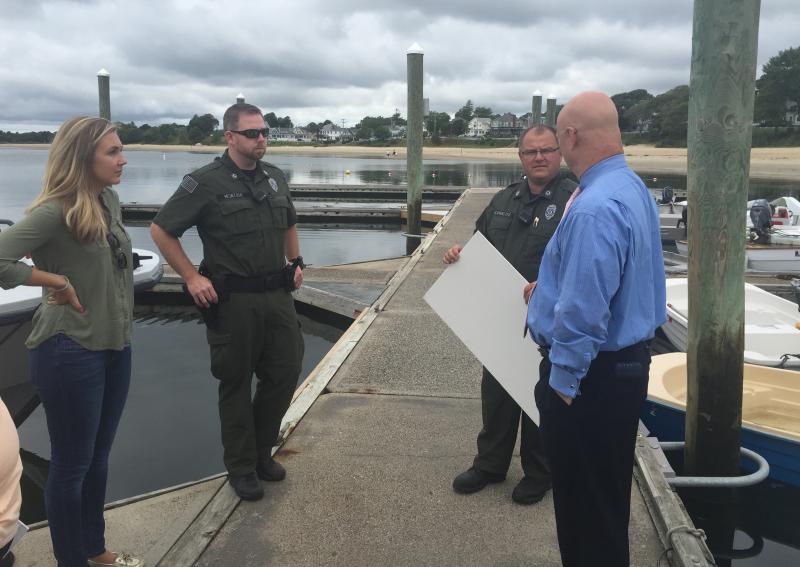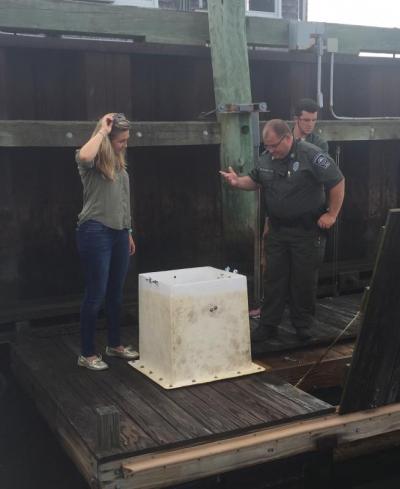$2,000 donated to boost Wareham's oyster population
A new, low-cost method for growing oysters is coming to Wareham, and all it takes is a kiddie pool, some rocks and a stretch of shoreline.
On Monday morning, representatives from the Massachusetts Oyster Project donated $2,000 to the Harbormaster Department. The funds will be used to build Fran-Spat-Pools throughout town. They consist of a plastic pool at least 4 feet in diameter that is weighed down with rocks in an intertidal zone. Inside the pool, between 16 to 20 oysters will be placed to reproduce.
“We wanted to find ways to increase the oyster population,” said Harbormaster Garry Buckminster. “We were the self-proclaimed oyster capital back in the day, and we’re looking to get the title back.”
Buckminster said he plans to start the project with 20 pools placed in different locations throughout town.
“Right now, were going to experiment and see what works best,” he said.
Mike Schmit, CFO of the Massachusetts Oyster Project, explained that oysters act as natural water filters, processing up to 40 gallons per day. His organization, an all volunteer nonprofit, is dedicated to growing oysters throughout the state to increase water quality.
“The Fran-Spat-Pools will help boost the oyster population,” said Schmit. “We’re looking to clean up the water with oysters.”
Schmit said that while the pools are low-tech, they are effective. If the tide recedes on a sunny day, the temperature of water in the pool rises, which prompt the oysters to release eggs and sperm. Because the oysters are concentrated in a small area the fertilization rate is high. When the tide returns the fertilized eggs (known as spat) are swept out into the water.
According to the Massachusetts Oyster Project, the pools cost $8 each and oyster stock costs $25. The oysters produce up to 200 million spat. If 5 percent of the spat survive, that’s 10 million oysters.
Education is another component of the project, said Schmit. The group seeks to provide internships for high school and college students related to oyster production.
Buckminster said that Girl Scout Troop 80181 will assist the Harbormaster Department with the project by collecting discarded oyster shells from local restaurants. The shells are placed in the pools, allowing the baby oysters to take hold.
Schmit noted that the oysters used are not the type grown for commercial consumption, which tend to live for three years, but a smaller variety that live up to 15 years.
The Fran-Spat-Pools will complement the Harbormaster Department’s oyster growing operation, which was revived in 2013 with the installation of an “upweller.” Located on a dock near the department’s Onset office, the upweller provides a nutrient-rich environment for oysters to grow.
When the oysters reach a certain size, they are moved into the bay in the hopes of reviving the population.
Massachusetts Oyster Project President Jennifer Filiault said she was impressed with the department’s efforts.
“This is great,” she told Buckminster. “It seems like you have so much going forward.”
















